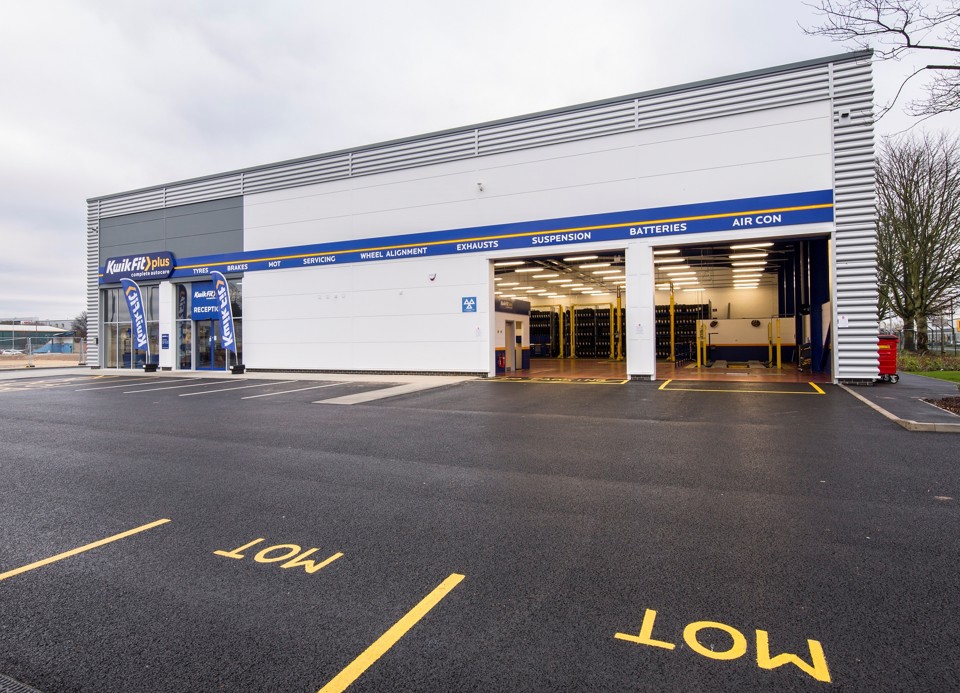Almost 1.1 million unroadworthy vehicles are set to return to the roads as the COVID-19 lockdown begins to ease, according to new research by Kwik Fit.
The research revealed that an estimated 1,096,000 vehicles, which would have received a six-month MOT extension, would have failed a test with dangerous or major defects had they undergone a MOT test.
A resulting summer spike in unroadworthy vehicles could result in road safety concerns, but also an opportunity for car retailers, who should be making customers aware of the need for vital vehicle maintenance.
Kwik Fit estimated that some 316,000 of vehicles set to return to the UK's roads during lockdown would have dangerous defects, while 780,000 vehicles would fail with major defects.
Only 24% of vehicles that were due for a MOT test, has been tested since March 30 - when vehicles were granted an automatic six-month extension to its expiry date - 49% of drivers who received, or are due to receive a MOT extension, will go to the end of that period without getting their car tested, the research revealed.
Roger Griggs, communications director at Kwik Fit, said: “It has been interesting to see that many drivers have still had their car MOTed despite receiving an extension, because they want the reassurance a test provides.
“The extension has been very helpful to drivers during the lockdown, but as COVID-19 prevention measures begin to ease, we urge the government to remove the automatic extension in order to prevent dangerous and illegal cars taking to the roads unchecked.”
Kwik Fit analysed the latest Driver and Vehicle Standards Agency (DVSA) data, along with its own statistics.
Many drivers will also be knowingly driving an unsafe vehicle, as 8% of those who will wait for the end of the extension said they will waitt as they believe something may be wrong with their vehicle and do not want to risk it failing. One of five drivers said they are waiting until the end of the extension to save money.
Griggs said: “Our research found that the most common reason people were giving for going to the end of the extension without a test was that they ‘knew their car was safe’.
"Unfortunately, our experience shows that many people who think their car is safe are driving a vehicle with dangerous or major defects – the physical MOT test is a vital way to help ensure the safety of those drivers, and the other road users around them.”
The research also found that most drivers (71%) would like the government to end the MOT extension now and a third of drivers (31%) said they want the extension to be stopped immediately.
In total, 19% said they’d like the extension to be end when traffic reaches a quarter of normal levels and 20%, when traffic gets to half the usual volume.
Government data shows that traffic returned to 50% of normal levels on May 15.
The Independent Garage Association (IGA) has urged Government to scrap the temporary MOT extension following Prime Minister Boris Johnson’s “back to work” lockdown easing measures.
Stuart James, chief executive at the Independant Garage Association, said: “Stopping the MOT extension without delay will ensure that many more cars are roadworthy, and another major step will be taken in helping the UK economy recover.”
On the other hand, fewer than one in five drivers (18%) think that the government should keep the MOT extension in place until vehicle use gets back to previous levels.
Those who have had their car tested, or will do so, are more than twice as likely to believe that the extension should be stopped immediately, compared to those who will not get their car tested until the end of extension period (42% compared to 20%).
Kwik Fit’s revealed that those who have had their car tested have been driving more miles under lockdown than the average (27.2 miles compared to 20.4 miles).
Kwik Fit advises that any driver concerned about the condition of their car shouldn’t wait for their next MOT, they can visit a Kwik Fit centre for a vehicle safety check.


















Login to comment
Comments
No comments have been made yet.